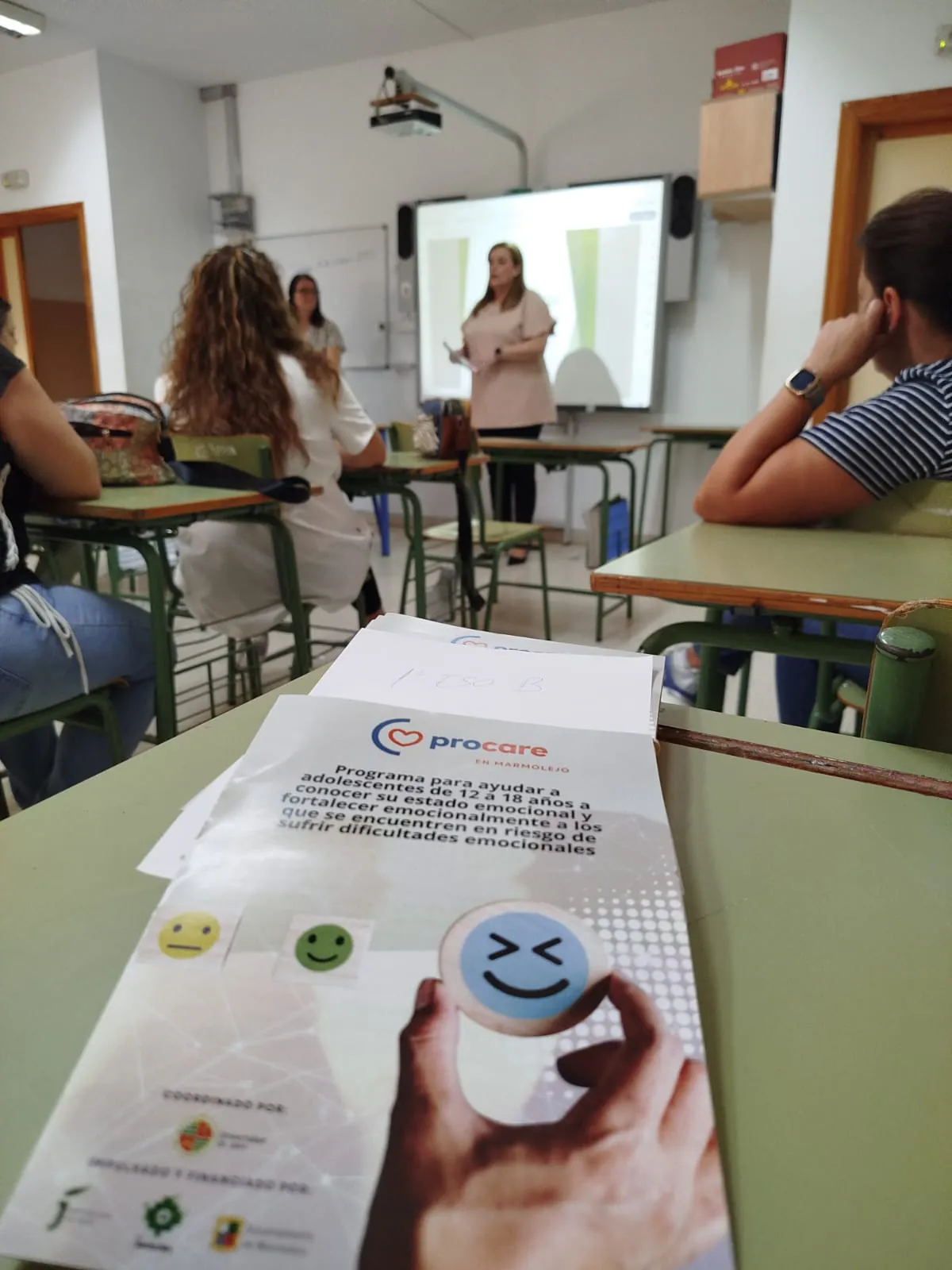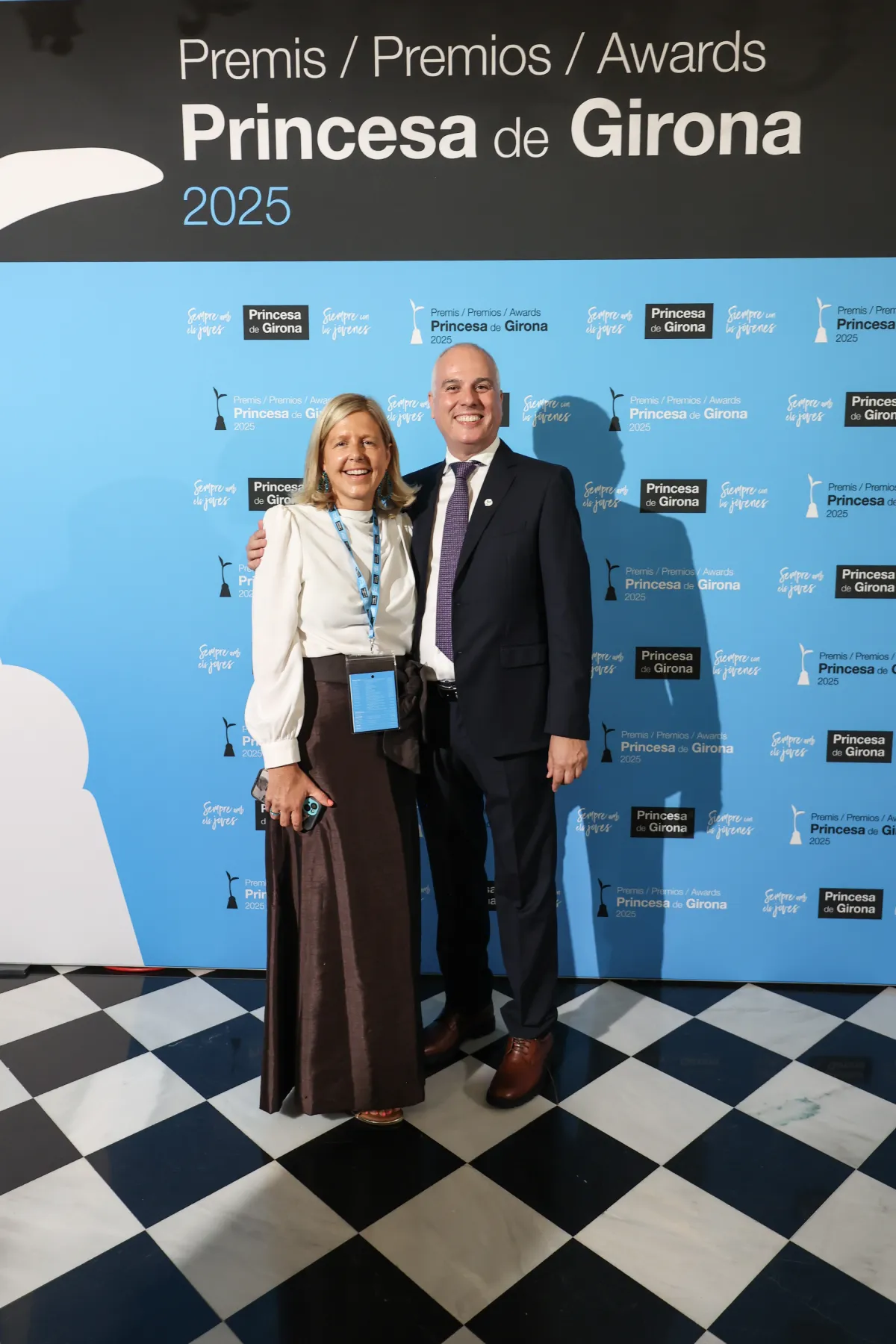The Instituto de Estudios Giennenses (IEG) of the Diputación Provincial de Jaén organized the round table ‘Advances in research on Covid-19: A multidisciplinary view‘, within the conference ‘Impact of Covid-19 in the Province of Jaén. Analysis and Proposals’.
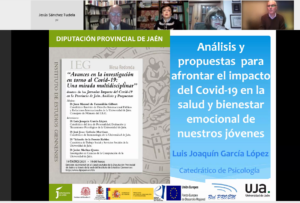
The event was moderated by Juan Manuel de Faramiñán, Emeritus Professor of International Public Law and International Relations at the University of Jaén and IEG Councilor; and was attended by Adela Tarifa, Director of the IEG, who highlighted “the work of researchers at the University of Jaén (UJA) on COVID-19 over the last few months”.
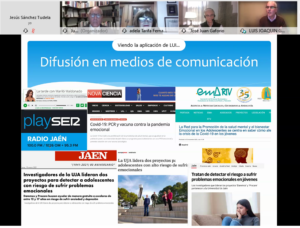
Luis Joaquín García, Professor of Personality, Evaluation and Psychological Treatment at the University of Jaén and head of the PROEM Network, was the speaker. In his presentation, he made an analysis and a series of proposals to address the impact of COVID-19 on the health and emotional well-being of young people.
More specifically, Luis Joaquín García outlined the work carried out from the PROEM Network and the UJA research team throughout the pandemic, with special attention to the implementation of the DAREMOS-PROCARE project, in collaboration with national and international universities, governmental organizations and social agents. “This free initiative is open to young people who may be having a hard time in these difficult times. First, a quick emotional screening test will be conducted, followed by an emotional PCR, and if risk is detected, we will equip young people with resilience to strengthen them emotionally through an online emotional vaccine.
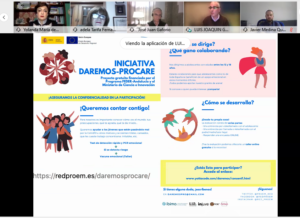
Likewise, the head of the PROEM Network insisted on the need to include in the II School Health Plan an evidence-based screening protocol for the early detection of adolescents with, or at risk of developing, emotional problems in the educational context. “To this end, it is important to systematize the assessment tools for schools, paying special attention to rural areas and groups in vulnerable situations,” he said. In turn, she alluded to the creation, validation and promotion of evidence-based prevention and intervention programs to address the emotional health and well-being of young people, with an emphasis on gender and the most vulnerable population.
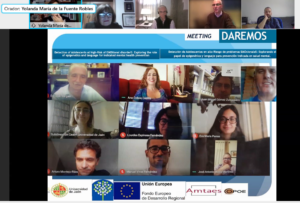
Since emotional problems are rarely detected by teachers or health professionals such as pediatricians, these professionals request training by health psychologists and other mental health professionals to detect young people with (or at risk of) emotional problems in order to refer them to a specialist. Juan Gaforio, Professor of Immunology at UJA, Yolanda de la Fuente, Professor of Social Work and Social Services at UJA, and Javier Medina, researcher in Computer Science at UJA, also participated. All three provided their perspective on the pandemic and its consequences from the point of view of health, social services and technology, respectively.
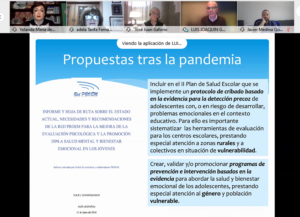
The event was broadcast on the Youtube channel of the Diputación Provincial de Jaén and had a notorious attendance of spectators. In this link you can watch the complete round table: https://www.youtube.com/watch?v=NRXg2E1U858

